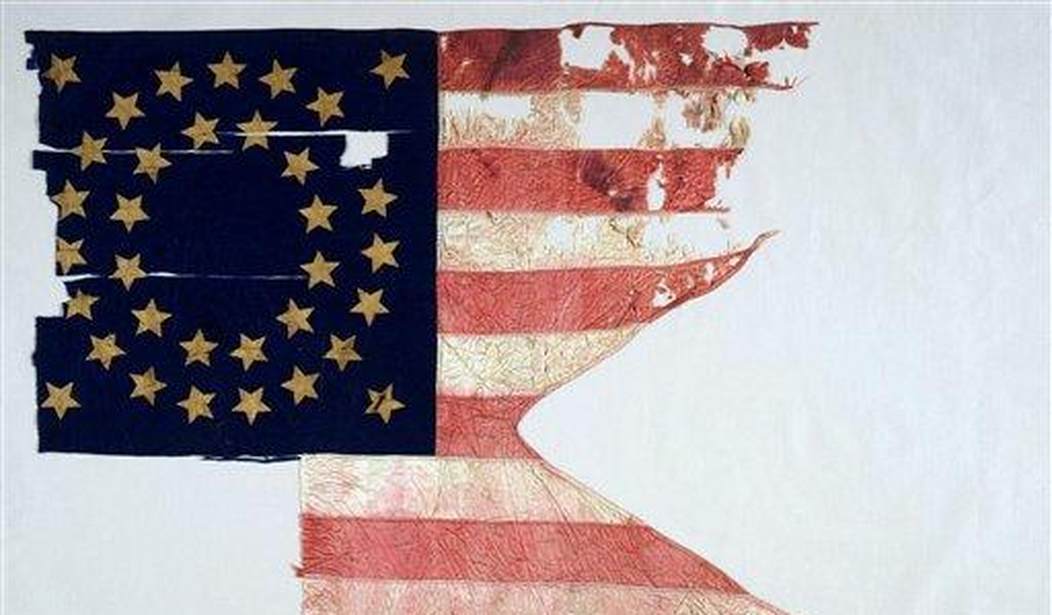Harking back to the not-too-distant past when education didn’t entirely consist of learning how racist and evil our forefathers were, H. W. Crocker III heads up his latest and arguably most riotous picaresque novel, Armstrong Rides Again!, with the Latin inscription Numquam concedere. That’s “Never concede,” kids, and after Covid-19, the 2020 election, the exaltation of perversion and insanity, the Reichstag Fire incident of January 6, and six months of Biden’s handlers stirring up war, inflation, invasion, and more, it’s a good motto for dissidents to keep in mind. In Armstrong Rides Again!, the chief refuser to concede is none other than George Armstrong Custer himself, who in the novel was not killed in the Battle of Little Big Horn, and is instead making his way through a post-Civil War world that is absurd enough to make our own almost look sane.
Custer teams up with another real-life character, the nineteenth-century satirist Ambrose Bierce, and undertakes his travels with help from an Indian scout, Billy Jack, whose name is taken from the eponymous 1971 guilt-manipulation Western, one of the first of a long line of major motion pictures that spread the now all-pervasive mythology of saintly Indians suffering within a rapacious and unfeeling larger American culture.
Armstrong Rides Again! is a marvelous antidote to such politically correct fantasies. In this world (as in the real one, though the fact is largely forgotten now), no group has a monopoly on good or evil, and even the most altruistic act is shot through with self-seeking. At the same time, the book is filled with sly social commentary, particularly when Custer makes his way to the fictional Latin American republic of Neustraguano (I’ll leave you to figure out what that one means).
Custer is there to come to the aid of El Caudillo, who lives in “el Palacio Blanco” and is “the hereditary soldier-emperor of Neustraguano; a defender of our nation and its faith,” whose enemies (including “a strange, spiky, herky-jerky figure,” a woman who “looked like a stage witch, perhaps touched with fever”) see him as “an exploiter of its people; defended by superstition!” This woman “works with the Indians on the borderlands. They suffer from a plague. The people wear bags as protection from it.”
A protest against El Caudillo is described by one of its supporters as “a protest for science—and against ignorance as represented by El Caudillo and that cathedral. Our nation’s square should not be dominated by a Church or represented by a monarchy—both relics of a dark, unenlightened past.” The foes of El Caudillo are found even within his government, for when the leader tells Custer how sorry he is that “the most attractive people in Neustraguano never have children,” such that his people, “over time, become uglier and uglier,” Custer notices that “the cabinet officers were rolling their eyes or burying their faces behind their hands.”
Is this beginning to sound familiar?
El Caudillo continues in cadences that also might remind you of someone who not too long ago bestrode this narrow world like a colossus: “Of course, it’s not half as bad as the rebels—they’re utterly barbaric. Their Indians—not your Indian, I see—actually stick bones through their noses. Can you imagine? Bones through their noses—how do they even do that? And they do weird things with their earlobes, sort of distending them. And they scarify themselves with tattoos. Of course, they’re not Christians. They do not know that the body is the temple of the Holy Spirit. They are ignorant in that regard. But they are clever in their own way. They have a tradition of cutting off heads and shrinking them. How do they do that? It’s their ancient secret. I thought we should stamp it out as barbaric, but my councilors tell me that instead we should apologize to the Indians, because if our plantations hadn’t crowded them out, they wouldn’t be raiding, decapitating people, and shrinking their heads; they’d just be shrinking each other’s heads, and that would be all right, because that’s their business—or that’s what they tell me.”
I thought we should stamp it out as barbaric, but my councilors tell me that instead we should apologize to the Indians. An absurd world? Sure. Yet a few years ago, Canada’s Leftist government repealed a law that had been advocated by the Conservative government it succeeded, outlawing “barbaric cultural practices” such as female genital mutilation and polygamy. It won’t do to call such things “barbaric,” you see, not in this age of multiculturalism and diversity. Meanwhile, in the U.S., Antifa barbarians have torn down even statues of Lincoln, Ulysses S. Grant, and Frederick Douglass: Apparently instead of ending the barbaric cultural practice of owning slaves, we should apologize to the slaveowners.
Related: Antifa Rioters’ Response to the Latest Police Shooting Shows Just How Racist They Are
The absurd world of H. W. Crocker’s George Armstrong Custer and Ambrose Bierce is our own. In Armstrong Rides Again!, we now have a long look at it from a master satirist, whose keen observations will show you anew just how ridiculous our self-appointed moral superiors really are. This book is a wonderful antidote to the relentless misery that the Left seems to want to impose upon all of us. Read it and weep with laughter, and—numquam concedere.










Join the conversation as a VIP Member